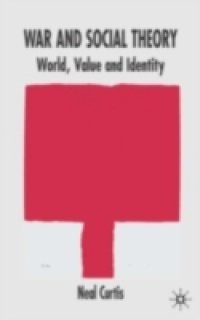Neal Curtis argues that wars, as interpretive-intensive activities, are about preserving and perhaps extending a sense of worldhood. This means that while the physics and logistics of warfare are addressed, the main concern is the metaphysics or ontology of war - the organization of good and evil, order and chaos, self and other, human and inhuman, subject and object, identity and difference, life and death. These tensions are central to the grammar of warfare and central to the making and preserving of worlds. The book offers eight studies of war from within sociology, philosophy and psychoanalytic frameworks, seeking to offer a full account of the theoretical positions being addressed by, among others, Nietzsche, Heidegger, Marcuse, Freud, Butler, Virilio, Scarry, Bataille, Schmitt, Hardt and Negri and to identify those components that contribute to an ontology of war. At a time when the 'war against terror' is used to legitimize the extension of a very specific set of values across the globe, such an exploration is timely and necessary.

